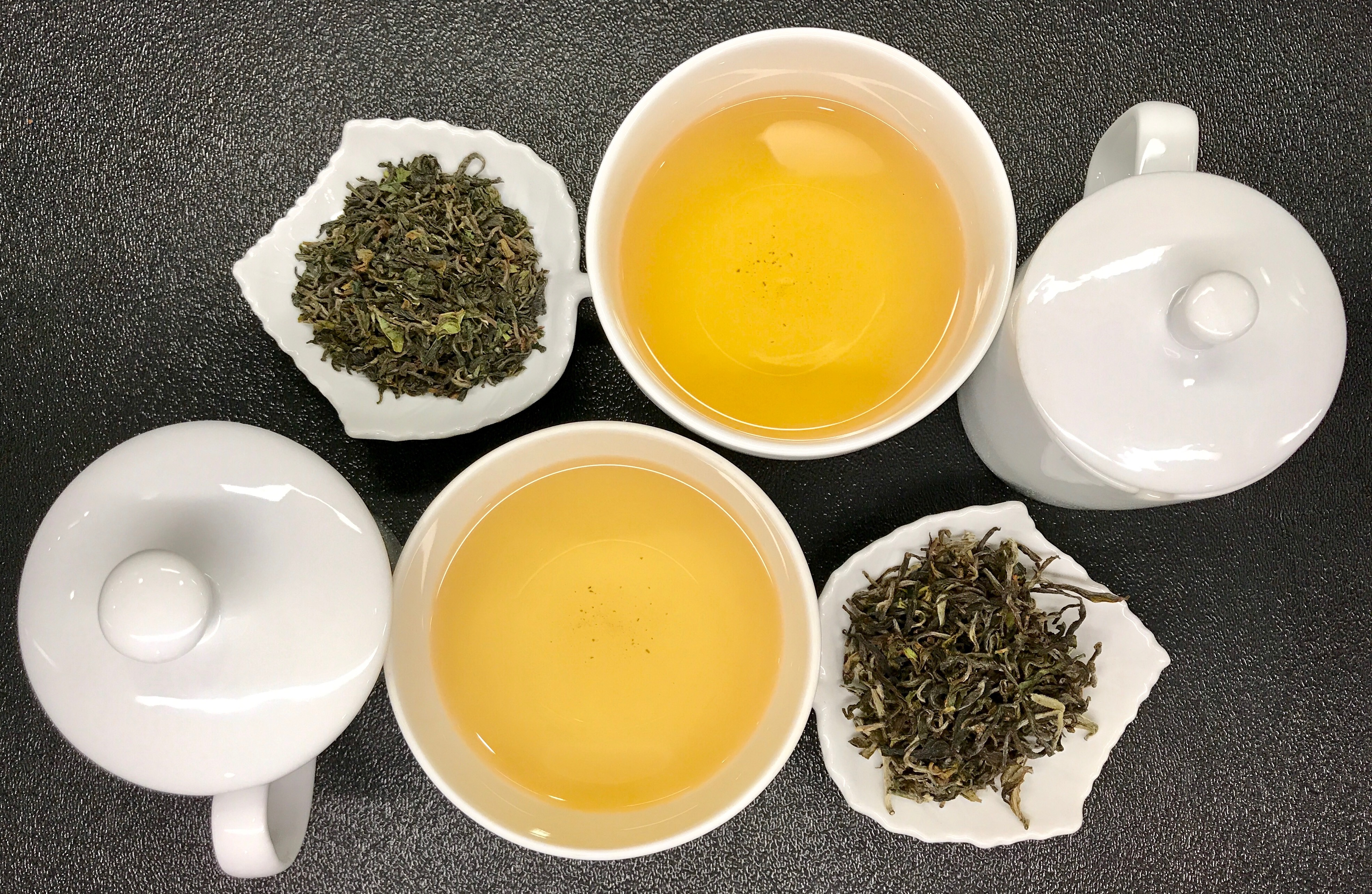Concerns Rise Over The Future Of Darjeeling Tea

Table of Contents
Climate Change and its Impact on Darjeeling Tea Production
The delicate Darjeeling tea plant is highly sensitive to climatic variations, making it particularly vulnerable to the impacts of climate change. The future of Darjeeling tea is intrinsically linked to the health of its environment.
Shifting Weather Patterns
Unpredictable rainfall patterns, rising temperatures, and increasingly erratic weather events are significantly impacting Darjeeling tea production. These changes directly affect the yield and quality of the tea leaves.
- Reduced Harvests: Erratic monsoons and prolonged droughts lead to reduced harvests, impacting the overall production of Darjeeling tea.
- Impact on Tea Quality: Fluctuations in temperature and rainfall affect the chemical composition of the tea leaves, impacting the characteristic flavor, aroma, and overall quality of Darjeeling tea. The muscatel flavor, so prized by connoisseurs, can be significantly diminished.
- Increased Susceptibility to Pests and Diseases: Warmer temperatures and altered humidity levels create ideal conditions for the proliferation of pests and diseases, leading to increased crop losses and the need for greater pesticide use. Recent years have witnessed several instances of significant pest outbreaks affecting Darjeeling tea plantations.
Pest and Disease Outbreaks
Changing climatic conditions are exacerbating pest and disease outbreaks, putting further strain on the Darjeeling tea industry. The increased frequency and severity of these outbreaks necessitate increased pesticide use, which can have negative environmental and health consequences.
- Increased Costs for Farmers: The need for increased pesticide application significantly increases the production costs for Darjeeling tea farmers, reducing profitability.
- Reduced Profitability: The combined impact of reduced yields and increased costs poses a significant threat to the financial viability of Darjeeling tea farms.
- Potential Health Concerns: Increased pesticide use raises concerns about the potential health implications for both tea workers and consumers. The demand for organic Darjeeling tea highlights the desire for safer and more sustainable practices.
Socio-Economic Challenges Faced by Darjeeling Tea Farmers
Beyond the environmental threats, the Darjeeling tea industry faces significant socio-economic challenges that hinder its sustainable development. The livelihoods of thousands of farmers are directly dependent on the health of this industry.
Low Prices and Unstable Market
Fluctuating global tea prices and intense competition from other tea-producing regions have resulted in low and unstable prices for Darjeeling tea, severely impacting the income of farmers.
- Debt Burden: Many Darjeeling tea farmers are burdened with significant debt, making it difficult to invest in improving their farms or adopting sustainable practices.
- Poverty: Low income levels and economic instability contribute to poverty among many Darjeeling tea farming communities.
- Migration from Tea Plantations: The lack of economic opportunities is forcing many young people to migrate from tea plantations in search of better livelihoods, leading to labor shortages.
Labor Shortages and Aging Workforce
The Darjeeling tea industry is facing a significant labor shortage, exacerbated by an aging workforce and the lack of interest among younger generations in tea cultivation.
- Lack of Attractive Employment Opportunities: Tea cultivation is often seen as physically demanding and low-paying, discouraging young people from entering the industry.
- Lack of Modernization and Mechanization: The limited adoption of modern technology and mechanization further reduces the attractiveness of tea farming as a profession.
Land Ownership and Land Rights Issues
Complex land ownership structures and unresolved land rights issues in the Darjeeling region create significant hurdles for the sustainable development of the Darjeeling tea industry.
- Land Disputes: Ongoing land disputes and uncertainties over land tenure hinder investment in long-term sustainable practices.
- Lack of Secure Land Tenure: The absence of secure land rights discourages farmers from investing in improvements to their land or adopting sustainable farming techniques.
Sustainability Concerns and the Future of Darjeeling Tea
Addressing the environmental and socio-economic challenges facing the Darjeeling tea industry is crucial to ensuring its long-term sustainability. A multi-pronged approach is necessary to safeguard the future of this iconic beverage.
Sustainable Farming Practices
The adoption of sustainable and organic farming practices is essential for mitigating the impact of climate change and ensuring the long-term health of the Darjeeling tea ecosystem.
- Reduced Pesticide Use: Minimizing pesticide use is vital for protecting both the environment and the health of tea workers and consumers.
- Water Conservation Techniques: Implementing efficient irrigation techniques is crucial for conserving water resources, especially in the face of increasing drought conditions.
- Promotion of Biodiversity: Encouraging biodiversity on tea plantations can help improve resilience to pests and diseases and enhance the overall health of the ecosystem.
Fair Trade and Ethical Sourcing
Promoting fair trade certifications and ethical sourcing practices is vital for ensuring fair prices for Darjeeling tea farmers and encouraging the adoption of sustainable farming methods.
- Improved Livelihoods for Farmers: Fair trade certification guarantees better prices for farmers, allowing them to invest in their farms and improve their livelihoods.
- Consumer Awareness: Educating consumers about the importance of purchasing ethically sourced Darjeeling tea can drive demand for sustainable products.
- Increased Demand for Ethically Sourced Darjeeling Tea: Growing consumer awareness of ethical and sustainable practices is increasing demand for ethically sourced Darjeeling tea.
Government Support and Policy Interventions
Government support and policy interventions are essential for addressing the systemic challenges facing the Darjeeling tea industry and promoting its long-term sustainability.
- Financial Assistance for Farmers: Providing financial assistance to farmers can help them invest in sustainable practices and improve their productivity.
- Investment in Research and Development: Investing in research and development can lead to the development of climate-resilient tea varieties and improved farming techniques.
- Promotion of Darjeeling Tea Globally: Government support for marketing and promotion can help increase the global demand for Darjeeling tea.
Conclusion
The future of Darjeeling tea hinges on addressing the multifaceted challenges it faces, from climate change and socio-economic pressures to sustainability concerns. By adopting sustainable farming practices, promoting fair trade and ethical sourcing, and securing government support, we can work together to safeguard this iconic beverage. Let's work together to ensure the future of this iconic beverage. Choose ethically sourced Darjeeling tea and support sustainable farming practices to preserve the unique flavor and heritage of Darjeeling tea for generations to come. The preservation of Darjeeling tea is not just about protecting a delicious beverage; it's about safeguarding the livelihoods of thousands and the unique cultural heritage of a region. Support the Darjeeling tea industry today, and help secure its future.

Featured Posts
-
 Ufc Fight Night Expert Predictions For Sandhagen Vs Figueiredo Bout
May 04, 2025
Ufc Fight Night Expert Predictions For Sandhagen Vs Figueiredo Bout
May 04, 2025 -
 Indy Cars Inaugural Season On Fox Schedule Drivers And More
May 04, 2025
Indy Cars Inaugural Season On Fox Schedule Drivers And More
May 04, 2025 -
 Ufc On Espn 67 Results Sandhagen Vs Figueiredo Full Fight Card Breakdown
May 04, 2025
Ufc On Espn 67 Results Sandhagen Vs Figueiredo Full Fight Card Breakdown
May 04, 2025 -
 Witnessing The Partial Solar Eclipse In Nyc This Saturday A Complete Guide
May 04, 2025
Witnessing The Partial Solar Eclipse In Nyc This Saturday A Complete Guide
May 04, 2025 -
 Are Kanye West And Bianca Censori Back Together
May 04, 2025
Are Kanye West And Bianca Censori Back Together
May 04, 2025
